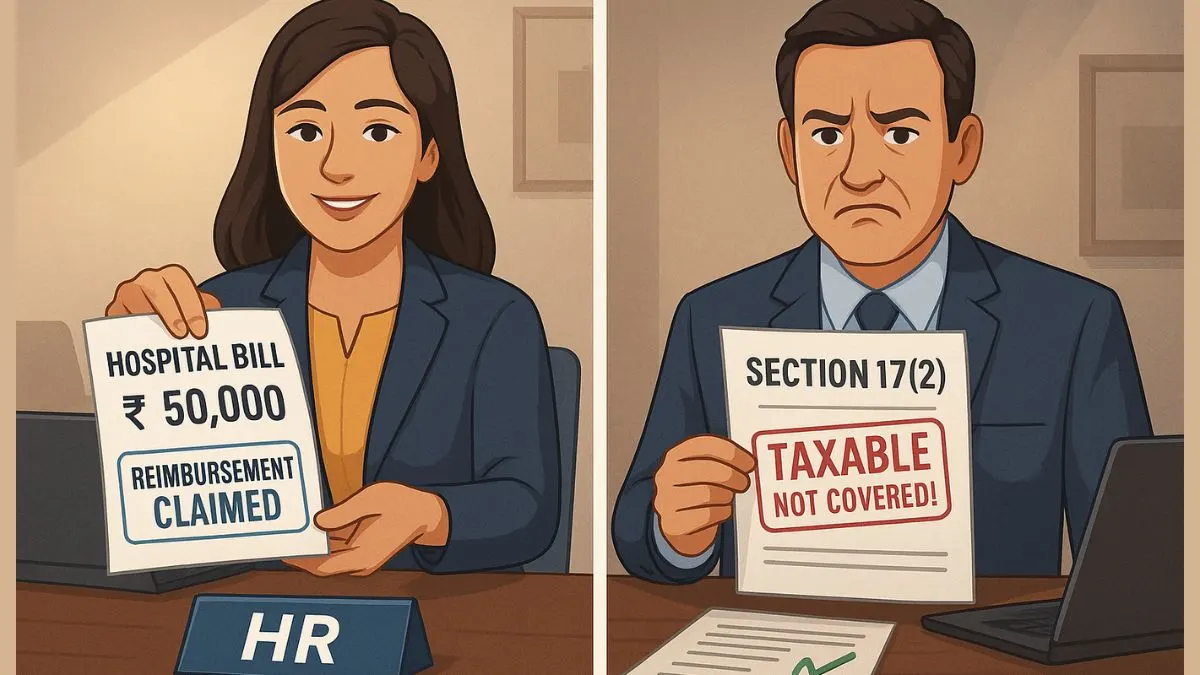
In the world of salaried income, every rupee saved in taxes counts. If you or a family member faced medical expenses recently, you may be wondering – Can I claim an exemption for that under income tax? The answer lies in Section 17(2) of the Income Tax Act, which deals with the valuation of perquisites, including medical reimbursement.
What Is Section 17(2) of the Income Tax Act?
Section 17(2) defines what is considered a perquisite (non-cash benefits given by an employer). One of the key inclusions here is medical benefits. Though major reforms in Budget 2018 phased out general medical reimbursement exemptions, specific medical expenses still qualify for deduction for medical expenses under certain scenarios. "
Medical Reimbursement Rules Before and After Budget 2018
Earlier (before FY 2018-19):
- Employers could reimburse up to ₹15,000 per year for medical expenses tax-free.
- Bills had to be submitted as proof.
Now (from FY 2018-19 onwards):
- ₹15,000 exemption is gone.
- A standard deduction of ₹50,000 (updated to ₹50,000 in Budget 2019) is available instead.
However, exemptions under Section 17(2) still exist in specific medical scenarios.
What Medical Bills Are Exempt Under Section 17(2)?
Here’s what you can still claim:
1️⃣ Medical Treatment in Government Hospitals
- If the treatment is availed in a government hospital, the entire cost is borne by the employer and is exempt from tax.
- Includes expenses for employee, spouse, children, & dependent parents.
2️⃣ Medical Insurance Premium
- If the employer pays a medical insurance premium on behalf of the employee (under a scheme approved by IRDAI), it's not taxable.
3️⃣ Serious Illnesses Outside India
- Expenses incurred for the treatment of life-threatening diseases outside India are exempt if:
- The treatment is approved by the competent authority.
- The total foreign exchange expenses are within RBI-prescribed limits.
4️⃣ Treatment in Employer-Run Hospitals
- If the treatment is taken in hospitals maintained by the employer, it is fully exempt. "
Are All Medical Bills Claimable?
No. Only those medical bills that meet the specific conditions of Section 17(2) will be allowed. Personal visits to private clinics or pharmacies for regular ailments won’t qualify unless covered under the scenarios above.
So while there is a deduction for medical expenses, it’s limited in scope under this section.
Common Mistakes to Avoid
🚫 Assuming ₹15,000 medical reimbursement still applies.
✅ It was replaced by standard deduction long ago.
🚫 Submitting bills for private hospital treatments without employer involvement.
✅ Exemption applies only when employer reimburses bills under qualifying heads.
Summary – What You Can Still Claim in 2025
|
Expense Type |
Tax Treatment Under Section 17(2) |
|
Govt Hospital Treatment |
Fully Exempt |
|
Employer-paid Health Insurance |
Fully Exempt |
|
Treatment in Employer-Run Facility |
Fully Exempt |
|
Critical Illness Treatment Outside India |
Exempt (Conditions Apply) |
|
General Medical Bills |
❌ Not Exempt |
💡 Need help filing your ITR with medical exemptions the right way?
👉 [Get expert help at Callmyca.com & don’t miss out on any eligible deduction!]











